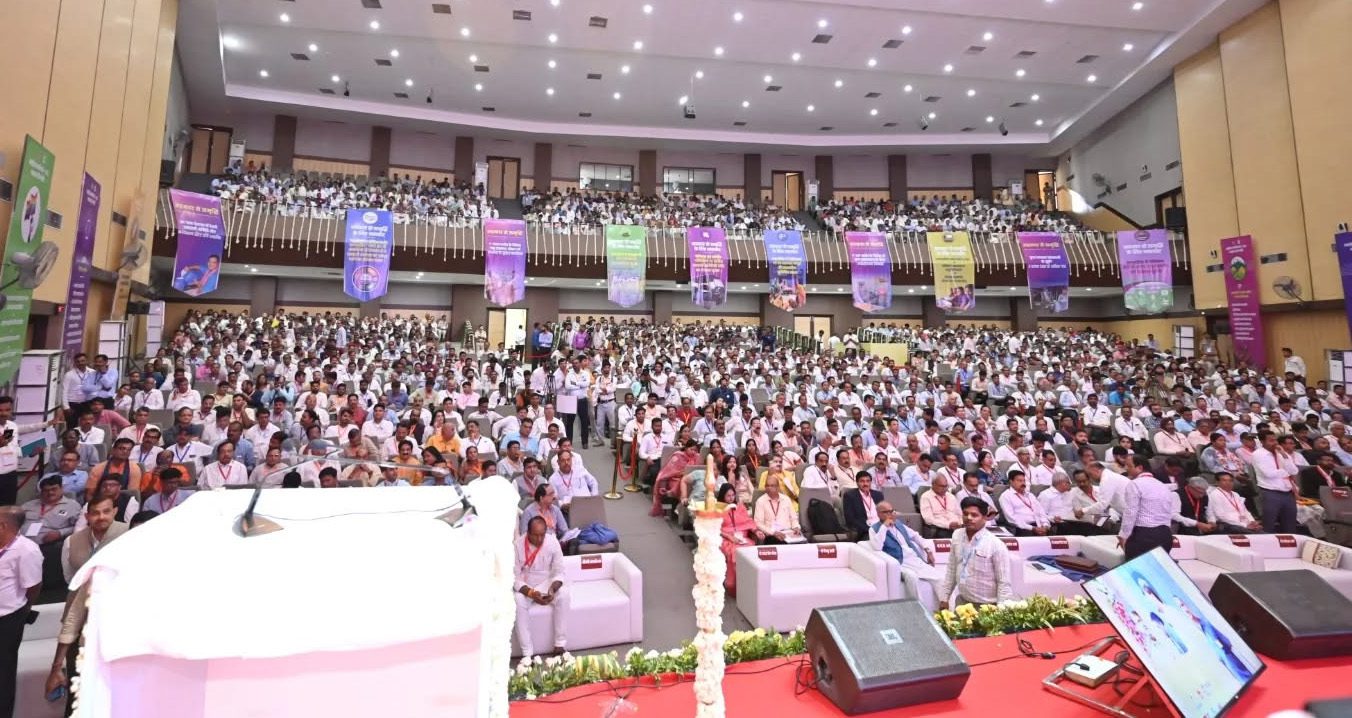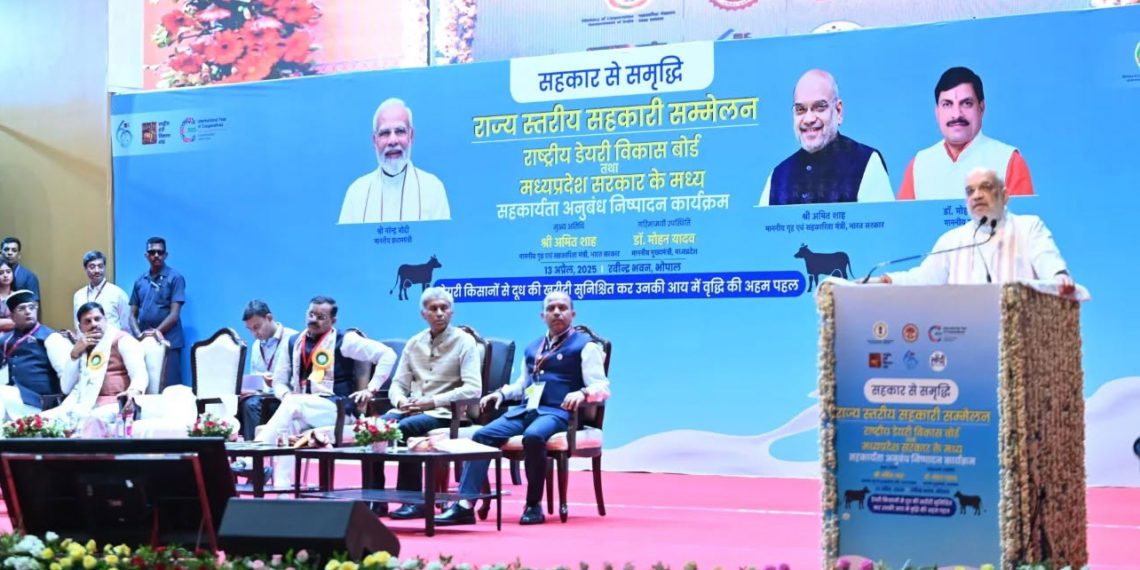Union Home Minister and Minister of Cooperation Amit Shah addressed the State Level Cooperative Conference in Bhopal, highlighting the untapped potential in agriculture, animal husbandry, and the cooperative sector in Madhya Pradesh.
He noted that the cooperative movement in India had long suffered due to outdated laws and lack of national-level coordination. While cooperatives are a state subject under the Constitution, no efforts had been made to modernize the legal framework or account for regional conditions in agriculture and rural development.
This changed with the formation of the Ministry of Cooperation under Prime Minister Narendra Modi, aimed at reviving the cooperative structure with a national vision. Shah emphasized that although legal authority remains with the states, the Centre has taken initiatives like model by-laws for Primary Agricultural Credit Societies (PACS), which have now been widely adopted.
These reforms have transformed PACS from small loan providers to multi-functional hubs offering over 20 services, such as Jan Aushadhi Kendras, ticket bookings, bill payments, and the management of schemes like Har Ghar Nal. PACS are now equipped to serve villagers with over 300 government services, reducing the need for them to visit cities for basic tasks.
Further reforms include the establishment of Multi-Purpose PACS by integrating them with dairy and fishery cooperatives. The government has invested Rs 2,500 crore to computerize all PACS, making Madhya Pradesh a national leader in this initiative. Computerization has enabled online audits and connected cooperative banks to NABARD, increasing transparency and efficiency. The software used by PACS now operates in 13 Indian languages, making access easier for farmers in different states.
To empower farmers further, three new national-level cooperatives have been launched. National Cooperative Export Limited (NCEL) supports export of agricultural produce, National Cooperative Organic Limited (NCOL) promotes organic farming with better prices for farmers, and Bharatiya Beej Sahakari Samiti Limited (BBSSL) focuses on conserving and distributing indigenous seeds. These entities allow even small farmers to access premium markets and receive direct payments into their bank accounts.
Shah also spoke about the newly established Tribhuvan Sahkari University, which will train professionals like accountants, veterinarians, dairy engineers, and agricultural scientists specifically for the cooperative sector. He announced a memorandum of understanding between the National Dairy Development Board and the Madhya Pradesh Cooperative Dairy Federation to expand the state’s dairy network. Although the state produces 5.5 crore liters of milk daily, less than one percent currently goes through cooperatives. Only 17 percent of villages have a milk collection system, but the aim is to expand this to 83 percent.
The minister highlighted that connecting farmers to cooperative dairies will ensure fair prices, regular payments, and additional income through value-added products like curd, butter, and cheese.
Financial support for this expansion will come from the National Cooperative Development Corporation. He called on MPCDF to ensure quality, branding, and timely payments, targeting 50 percent village coverage in the next five years. With better governance now in place, he said this is the best time to revive and strengthen the cooperative sector in Madhya Pradesh.














































